Slovak Open Science Forum
Konferencia otvorenej vedy prináša najnovšie informácie z rôznych oblasti otvorenej vedy, medzi ktoré patrí napríklad otvorený prístup k výskumným informáciám, manažment výskumných dát, hodnotenie vedeckej činnosti či občianska veda.
Informácie sú určené vedeckej a akademickej obci, akademickým knižniciam, ale aj študentom a verejnosti.
Konferencia sa koná v anglickom jazyku a prezentujúcimi sú prevažne zahraniční odborníci z oblasti otvorenej vedy.
The conference brings the latest information in different areas of open science, including open access to research data, research data management, research assessment and citizen science.
The information is aimed at the scientific and academic community, academic libraries, as well as students and the public.
The conference is held in English, and the presenters are mostly international experts in the field of open science.
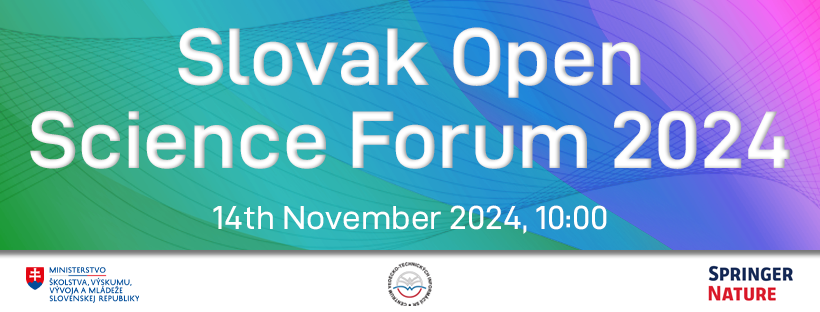
The Second Slovak Open Science Forum was held under the auspices of the Ministry of Education, Research, Development and Youth of the Slovak Republic.
Presentations are available in the Zenodo repository.
Recordings.
Johan Rooryck (cOAlition S, BE) – cOAlition S: the road ahead – The presentation informed about current activities and future plans of cOAlition S in moving to a scholarly communication system.
Laetitia Bracco (l’Université de Lorraine, FR) – French Open Science Monitoring – French Open Science Monitor (FOSM) tries to capture the efficiency of open access policy through different indicators. This paper presented the latest version of the FOSM, which focuses on research data and software.
Sándor Soós (Hungarian Academy of Sciences, HU) – Bibliometrics as a key to Open Access Publishing – but not the way you think of it – The presentation illustrated a number of instances, based on current research, where the utilisation of bibliometric methodology helps to dispel myths or, at the very least, to elucidate common misperceptions surrounding OA publishing.
Matej Antol (MUNI, EOSC CZ) – Towards the Development of the Czech Data Infrastructure for FAIR Research Data – The author presented the EOSC CZ – a Czech national initiative dedicated to advancing best practices in research data management across scientific communities.
Rita Pinhasi (KEMÖ consortium, AT) – Open access publishing in Austria – This presentation gave the audience an overview of the various business models Austria has experienced with transformative agreements.
Maria Kadlec Markova (SpringerNature, CZ) – Accelerating open science with tools not rules – In this talk we looked at some of the key milestones on the long road to open science and how tools rather than rules are helping researchers improve the transparency, reproducibility, and integrity of their research.
Lucia Glajšeková, Alica Kubeková (Faculty of Natural Sciences of Comenius University, SK) – The use of citizen science in the monitoring of animal species – The authors talked about their experience with citizen science projects in Slovakia.
Recordings:
Johan Rooryck – cOAlition S: the road ahead: https://video.nti.sk/rec?1106485RWE9I5CI40
Laetitia Bracco – French Open Science Monitoring: https://video.nti.sk/rec?11073793H2URD9324
Sándor Soós – Bibliometrics as a key to Open Access Publishing – but not the way you think of it: https://video.nti.sk/rec?1107614SHE59IOL81
Matej Antol – Towards the Development of the Czech Data Infrastructure for FAIR Research Data: https://video.nti.sk/rec?11070581TJMCZFN67
Rita Pinhasi – Open access publishing in Austria: https://video.nti.sk/rec?11082975FH8CCS185
Maria Kadlec Markova – Accelerating open science with tools not rules: https://video.nti.sk/rec?1108573XKZLVRJ058
Lucia Glajšeková, Alica Kubeková – The use of citizen science in the monitoring of animal species: https://video.nti.sk/rec?1107991CNXWL2TR15

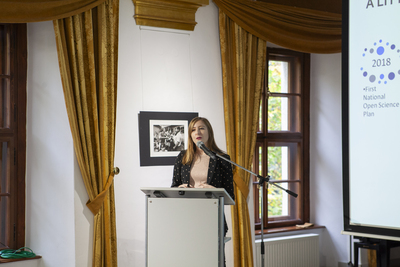
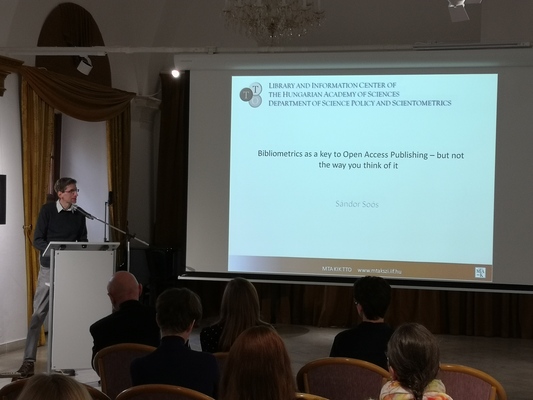
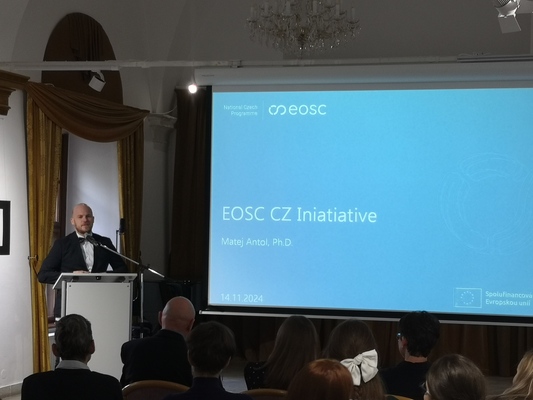

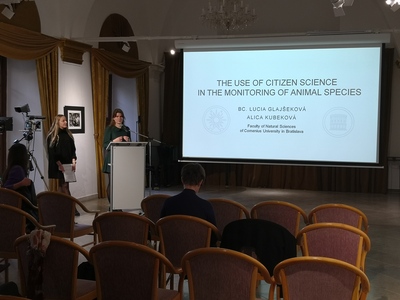
Meet our speakers

Johan Rooryck is Executive Director of cOAlition S since 2019, and co-PI with Pierre Mounier of the DIAMAS project. Since 2016, he is co-editor-in-chief of the Diamond Open Access journal Glossa: a journal of general linguistics, a journal that transitioned to Diamond Open Access when its Editorial Team and Board, as well as its reader and author community, decided to abandon the Elsevier-owned journal Lingua to found Diamond OA Glossa. He is a member of the Academia Europaea, a doctor honoris causa of UiT – The Arctic University of Norway, and a visiting professor at Leiden University, where he held the chair of French linguistics from 1993 to 2020.
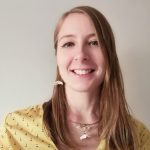
Laetitia Bracco is a library curator in the Research Support Mission of the Université de Lorraine libraries. She is in charge of the „ADOC Lorraine“ data workshop, the support service for research data, as well as the Bibliometrics unit. At the national level, she leads the research data working group of the Couperin consortium. She is also project leader for the French Open Science Monitor on research data and software code. At the international level, she co-coordinates the Open Science Monitoring Initiative (OSMI).

Sándor Soós is an internationally recognised researcher in scientometrics and science studies, and the head of Department for Science Policy and Scientometrics at the Library and Information Centre of the Hungarian Academy of Sciences. He also is an associate professor at Eötvös Loránd University, Faculty of Education and Psychology. He is the co-founder of the “Structure and taxonomy of science” international research group with ECOOM, KU Leuven, and member of the board of editors in Frontiers Research Metrics and Analytics. He is the series editor of Studies in Contemporary Science of Science, a recently launched book series of the Library and Information Centre of the Hungarian Academy of Sciences, published in Hungarian.
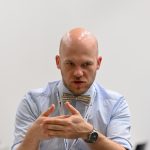
Matej Antol is the executive director of the CERIT-SC infrastructure, established at the Institute of Computer Science at Masaryk University. He also serves as the principal project manager of the EOSC-CZ project and as integration manager of the Czech e-infrastructure e-INFRA CZ. His research focuses on the management and analysis of complex, high-dimensional data – such as imaging and structural biology data – using artificial intelligence techniques.
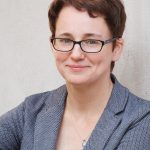
Rita Pinhasi is Deputy Head of the “Clearingstelle Konsortien” (Consortium Management) at the Vienna University Library and elected member of the Austrian Academic Library Consortium’s (KEMÖ) Cooperation Committee. She has over 15 years of consortial licensing and negotiations experience, with previous roles at regional and national consortia in Ireland, most recently as the manager of the Irish Research eLibrary (IReL) consortium.
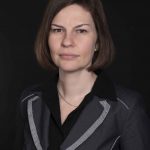
Maria Kadlec Markova joined SpringerNature team in October 2019 as a Sales director for Central and Eastern Europe, in year 2020 took over also Central Asia countries. Maria has nearly 15 years of industry experience with a very strong background in the subscription business and long term cooperation with consortia and individual customers in the region.

Lucia Glajšeková is studying Zoology at the Faculty of Natural Sciences, Comenius University in Bratislava. Her research focuses on biomonitoring non-native mud daubers of the genus Sceliphron (Hymenoptera, Sphecidae) using citizen science. She has been gathering data on the distribution of these species across Slovakia. Currently, she is conducting research on various Hymenoptera families found in the windblown sand regions of the Borská nížina lowlands.

Alica Kubeková is studying Biology at the Faculty of Natural Sciences, Comenius University in Bratislava. Her research focuses on the European Praying Mantis, Mantis religiosa (Order: Mantodea, Family: Mantidae), exploring how climate change influences its distribution and behavior. Using citizen science, she has gathered data on Mantis religiosa populations across Slovakia, aiming to identify trends related to environmental shifts.
VENUE
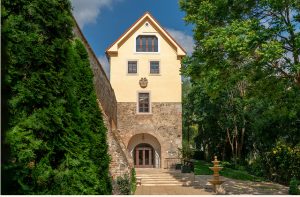
The Slovak Open Science Forum takes place at the Pálffy palace at 47 Zámocká street in Bratislava. The Pálffy palace is located close to the Zochova bus stop and Kapucínska tram stop.

